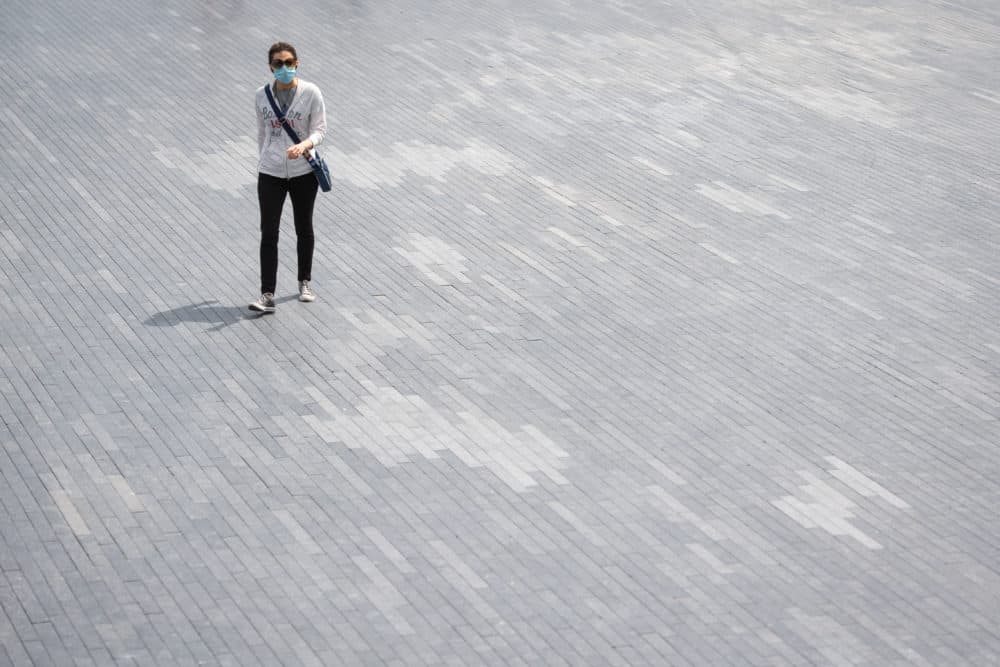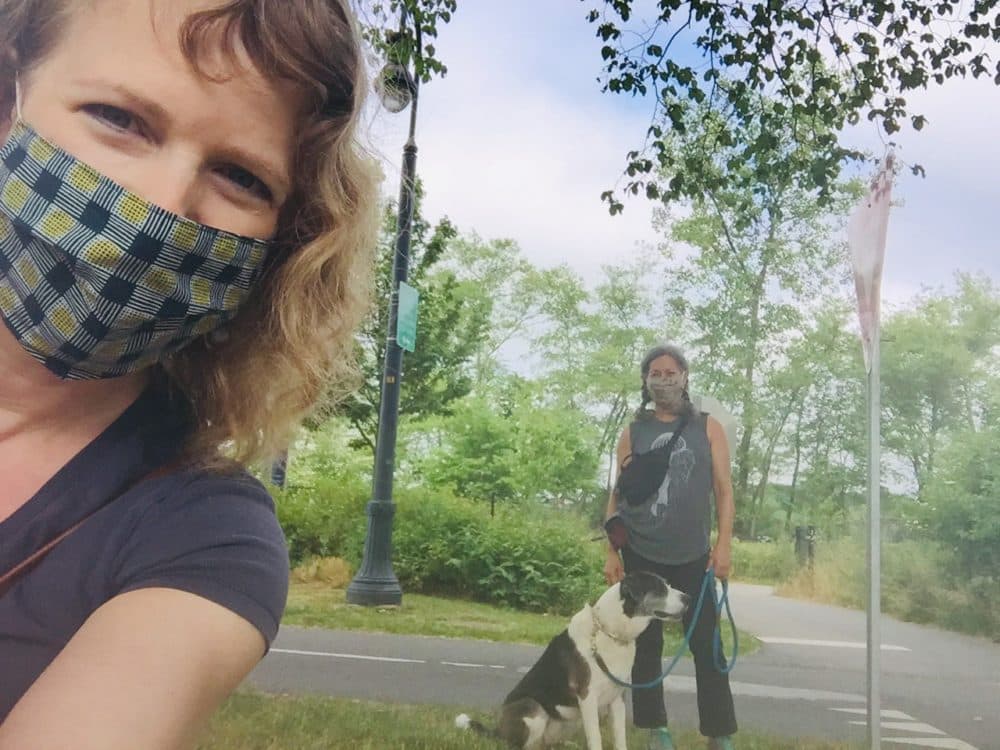Advertisement
Commentary
The Desperate Desire For A Real Hug

Living alone during the pandemic, the only body I’ve been able to touch is Sam, my orange tabby cat, who curls up at my waist when I’m sitting on the couch or sleeping in bed.
My state of social isolation brings me back to my 20s, when I chose to keep my distance from people. Despite wanting to have relationships, as a survivor of sexual violence I felt safer being alone. As a consequence, I missed out on forming real connections with potential friends and significant others. After my PTSD diagnosis and many years of therapy in my 30s, I finally put myself out into the world. To my surprise, I discovered that I was, and am, a social and affectionate person.
Now, as a single, 46-year-old college English professor, I’m isolating again, but not from a place of trauma. I’ve been living this way since the coronavirus pandemic began, in mid-March.
Like so many people, I’ve tried to stay connected with the people in my life through FaceTime and Zoom, through phone calls, texts and email. But I haven’t felt the satisfaction that comes with actually being with them. In fact, our virtual time “together” has only made me miss them more.
It had been months since I last saw my friend, Jeannie. But we recently decided to meet up, her dog, Zinnia in tow, at Fresh Pond Reservation for a social distance walk. Keeping six feet between us, and with masks covering our faces, we gasped for air, sometimes in laughter, sometimes frustration. We had to listen harder to hear each other’s words to understand our thoughts and feelings. After a while, stopping to rest, we found a way to figuratively remove our masks.
“It’s really hard living alone right now,” I confessed.
“I get it,” said Jeannie. Newly married, for many years she'd lived solo.
... I’ve also come to see human proximity and basic touch as a privilege, as a gift taken for granted.
About three weeks into Gov. Charlie Baker's stay-at-home advisory, I noticed a tingling in my skin, which grew into a persistent ache. It felt similar to the sensations I experienced years ago when I came off Klonopin and had intense physical withdrawal symptoms: the more time that transpired without the drug, the more my body craved it, needed it, even, in order to function. This time I wasn’t withdrawing from a drug, but from human touch, a daily dose of oxytocin.
As the days and weeks in quarantine progressed, the ache grew into more intense pangs, as if I were starving for food. I was reminded of the times I’d struggled with anorexic tendencies. Was “touch deprivation” a real thing? I know now that skin hunger is a real biological phenomenon, but there wasn’t any way to feed it. At some point, as if an instinctive coping mechanism kicked in, my body just numbed over.
I’ve envied my friends who live with significant others and children — and yet, they say they envy me. Exasperated, they complain about never having time alone except when they take a “time out” walk into the yard or around the block. All I can think about in response, silently, is how lucky they are. I can’t take a “time out” walk to escape my predicament. I understand my friends’ need for space, but I’ve also come to see human proximity and basic touch as a privilege, as a gift taken for granted.
Advertisement

At the end of our walk, Jeannie and I wanted to hug, but we couldn’t. My prolonged lack of physical contact felt almost unbearable. What about Zinnia? Could I hug her? I asked Jeannie if that was okay.
Yes.
I bent down and faced the dog, who sat so eagerly, ready to give and receive affection. As I put my hands around her, I imagined my affection reaching Jeannie by extension. As Zinnia leaned into me, sniffing my hair, I imagined I was receiving Jeannie’s love. I imagined it traveling from her heart through her arms and hands, through the leash, to where it was harnessed on her dog — her body touching my body.
For a brief moment, my need for human touch was sort of met. I still really want to hug my friend, but what I can hold for now is how, as we parted ways, my soul felt embraced by our connection.
